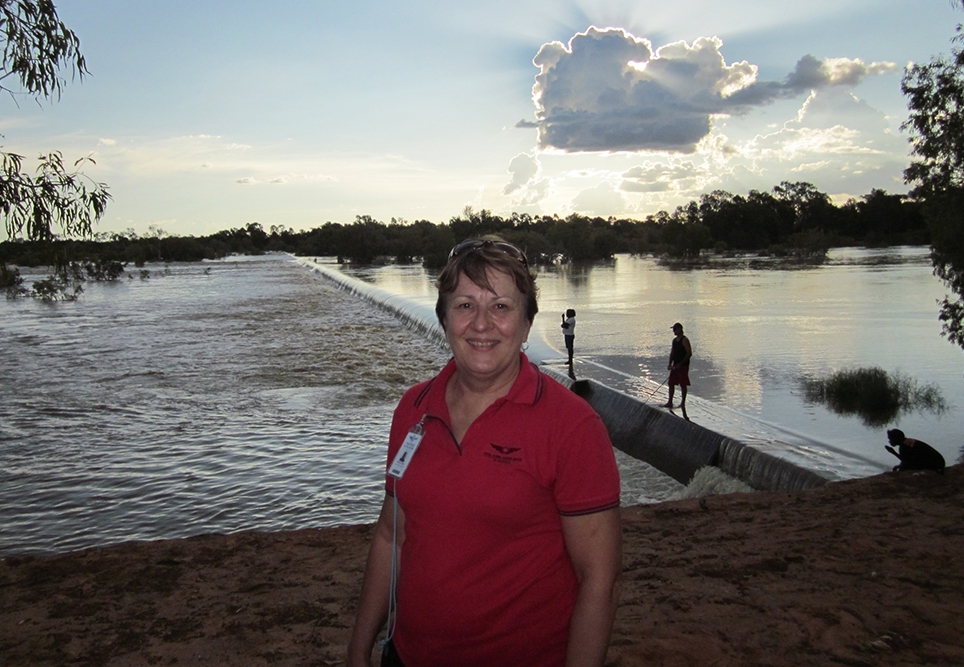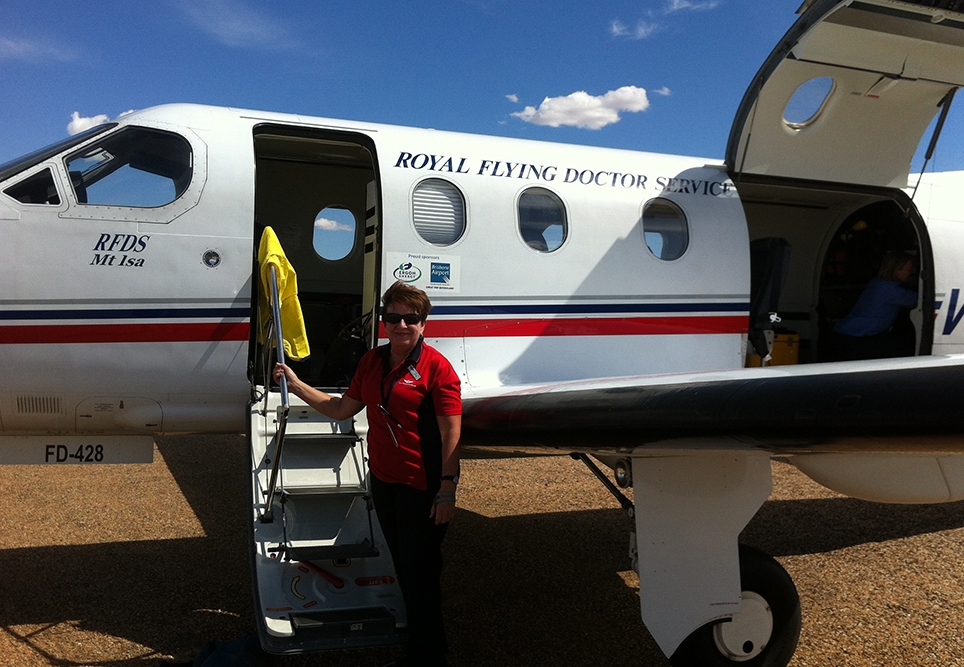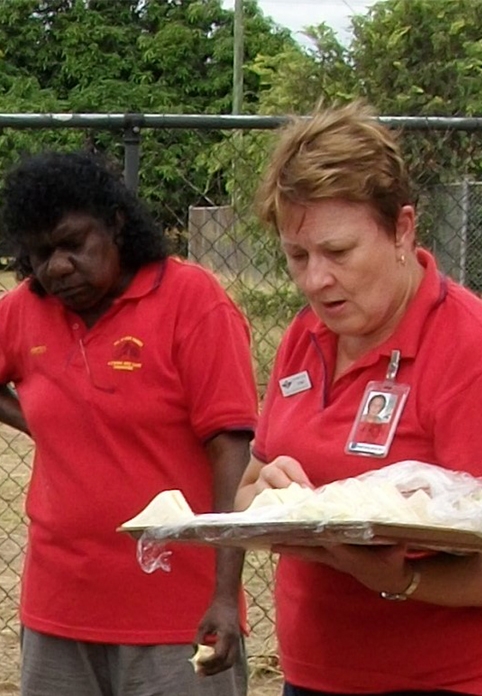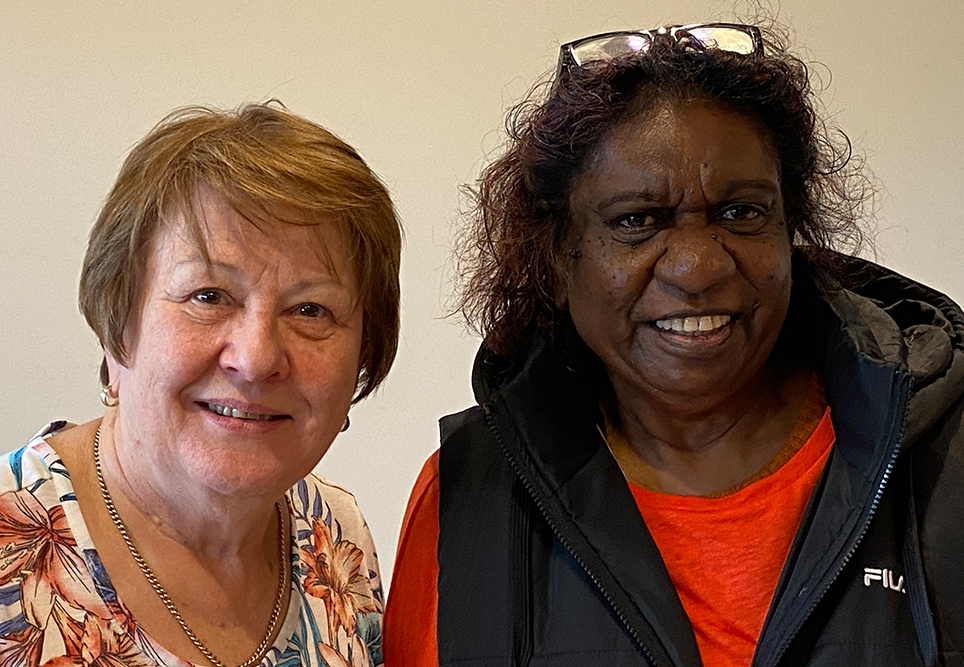This site may not work properly using older versions of Edge and Internet Explorer. You should upgrade your browser to the latest Chrome, Firefox, Edge, Safari, or any other modern browser of your choice. Click here for more information.
Your Stories
This is where we tell your stories, cover topical issues and promote meaningful initiatives.
Remote child health: a later transition
Child Health nurse and long-time CRANAplus Member Dianne Paul, now 72, describes herself as a ‘late starter to remote’ and yet despite retiring from nursing almost a year ago, still regularly finds herself perusing the employment opportunities section of CRANApulse, imagining a ‘next remote adventure’.
When her children were in kindergarten, Registered Nurse and Midwife Dianne Paul found herself helping more in the community, running school holiday programs, and scouts − a chapter that was to set a new trajectory for her nursing career.
“I really want to do community health,” she thought.
Di completed her Bachelor of Applied Science, Advanced Nursing/Community Health studies in 1990 and she chuckles recalling her next nineteen and a half years with Knox City Council, Child and Maternal Health.
“It was quite good preparation for going up North,” she says.
“You did everything from getting someone out to fix something… [to changing] a lightbulb.
“It was an extremely happy time with the opportunity to start new services like parenting training in the evenings; helping set up a breastfeeding, sleep and settling centre; as well as running your own clinic or clinics.
“[Some people think Child Health is] ‘oh, we’ll go to see the nurse and get the baby weighed.’ It’s a little bit more than that! We do the postnatal disorder screening, we do family violence screening, we run playgroups in our centres… [and] they’re an integral part.”
Connection to the country
Despite moving to the big smoke of Melbourne when she was ten years old, Dianne has always felt connected to the country.
“My home, my family connection, was out there [in Kerang] all my life and still is… I like country and country life.
“I’d always been interested in, not just remote nursing, but I’d been interested in the notion of living remote.”
“I travelled through remote areas… [and] always had an interest in Aboriginal people and their lives. From way back, I realised that in school we were taught such sanitised history.
“We drew pictures of humpies, and we were told in primary school how fabulous it was that we got them to come to church and then we built them proper houses.
“[Growing up] I never really knew or saw any [Aboriginal people].”
From the late-60s to mid-70s working at the Royal Children’s Hospital, Dianne reflects on feeling fortunate to care for children from across Australia.
“It wasn’t uncommon to have children from the outback or Aboriginal children from down in Gippsland area, or children from the Pacific Islands. And you did see things that people working in little hospitals wouldn’t see,” she says.
“You saw the parasites, tapeworms, scabies, and rheumatic heart disease. And maybe not everyone did, but I’d go back and read up about it.”
Looking for a new challenge: 2009 – 2014
In 2009, at 58 years old, and now with grownup children, Dianne was on the hunt for a new metro-based challenge when she spotted a recruitment advertisement for the Royal Flying Doctors Service (RFDS) in The Age.
“It was a big ad and it just jumped out at me. I cut it out and I took it to where [my husband] … was sitting reading. And I said, ‘How about this one?’ and he said, ‘Yeah, that’s really you. Yeah, you should apply for that.’ I nearly fell over.”
Dianne and her husband took a leap, establishing their new base in Mt Isa. They were ‘welcomed as a part of the town’ and described the community as a ‘social place to be’ from the Rotary Club and race days to helping with the rodeo, partaking in the Gregory Canoe Race, and looking on at the iconic Boulia Camel Races.
From development and behavioural health checks to implementing treatments such as wound dressings and iron injections, Dianne also spent much of her work time focused on health promotion.
“[My colleague Maree] worked on Mornington Island (Gununa), I worked in Doomadgee, and we did one day a week where we went out to one of the primary health care clinics,” Dianne says.
Dianne and her colleagues provided parental education to increase health literacy, administered preventative vaccines to children, and supported families through advocacy and referrals to other community services.
They also worked closely with other health specialists and services and expanded family support including pregnancy education and mothers’ groups.
In 2012, Dianne started a mothers’ group in Doomadgee called ‘Mums and Bubs’ designed to increase parent self-efficacy, skills and confidence, and provide a non-clinical environment to observe children’s development.
“I always judged my success by the number [of people] who came [to clinic or playgroup] without me having to recall… when they turned up at their own volition… I thought, ‘Oh, that’s fantastic. That’s really lovely,’” she says.
“You just had to learn to work at a different pace and to be more patient.
“To realise that everything you thought might take a certain time, might take up to double or triple that time but if you were willing to just go along, gently [you would have an impact].”
Becoming a ‘seagull’
After two years full-time, Dianne transitioned to FIFO for RFDS, or ‘became a seagull’ as some of her colleagues joked, flying in and flying out of Melbourne.
Living in a guesthouse in Doomadgee was another positive experience Dianne recalls, providing opportunities to have a chat with other health workers, or people visiting the community such as the local vet or audiologist.
“I think I made a bit of a difference.”
Dianne reflects on her time working remotely, explaining that the Mums and Bubs playgroup she developed, is still operating in Doomadgee after 11 years.
Though Dianne strongly attributes much of this success to the assistance and unwavering support she received from the Doomadgee locals, and Indigenous Health Workers, giving an extra special mention to Dorothy George (pictured below), whom she still keeps in touch with today.
“There was [also] a terrific commitment from the nurses who followed me to keep it going.
“I think I was very much a novice. A lot of [paediatric and midwifery] experience, but a novice in Indigenous remote health. And I acknowledge that, but I wasn’t afraid to ask [when I wasn’t sure].
“[I am proud that we] had 97 per cent full [immunisation] coverage for our cohort of children when I left Doomadgee. That was higher than the state average,” she says.
Dianne encourages those both in the early and later stages of their careers, with a bit of preparation, to give remote health a try.
“I was always glad I had a few grey hairs… because I think it did help to be an older person with a lot of experience.”
“Certainly, the grannies and the aunties were quite respectful of me and would come to ask or come to tell me they were worried about [someone in their family].
“I loved every minute of it. I mean, it was difficult at times, but on the whole, it was amazing. And people, I think, were appreciative.”
If you’re interested in learning more about remote child health, watch CRANAplus’ free, on-demand, three-part Child Health webinar series.



